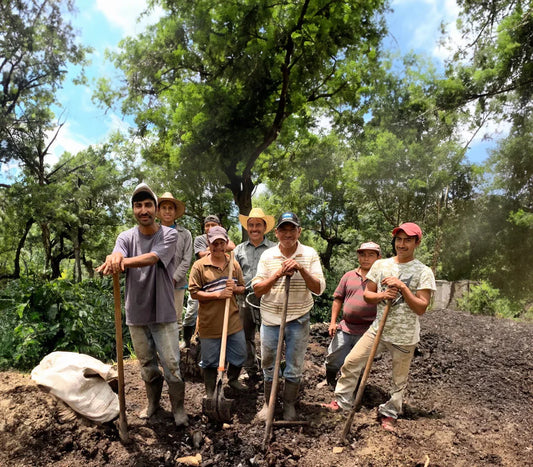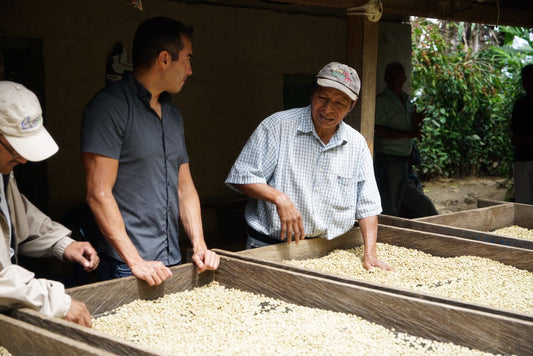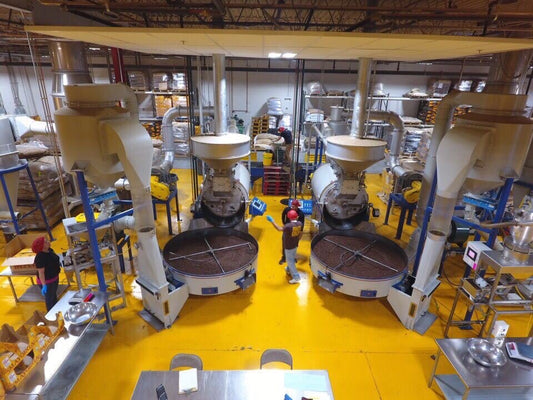
2022 Saw Bad Bunny's Success Skyrocket – So Where's His Grammy?
Bad Bunny is more than just a top reggaetonero from Puerto Rico. Not only did his success reach an all-time high last year, but he's also using his talents to shine a light on the social issues encountered by Puerto Ricans.
From humble beginnings in a working-class neighborhood in Puerto Rico to becoming one of the biggest names in Latin music, Bad Bunny has captivated audiences – both Spanish and non-Spanish speaking – with his unique style and undeniable talent.
His rise to fame has been nothing short of spectacular.
And in 2022, he reached an all-time high. His tracks were streamed on Spotify over 18.5 billion times and he won the prestigious title of being Apple Music's Artist of the Year.
“When I started, I didn’t have a global fan base,” he told Apple Music shortly after winning the award. “I’m grateful for everything I’ve accomplished and everything I’ve experienced. The Latin music movement has grown so much. I would never take full credit or say [that] it’s because of me. No, it’s every one of us. A whole generation. Our energy and presence are always felt.”
On top of the Apple Music award, Bad Bunny made history at the Video Music Awards (VMAs) by becoming the first non-English language performer to win the Artist of the Year award. He ran against the likes of Drake, Harry Styles, Lizzo, Ed Sheeran, and Lil Nas X. But, undeniably, 2022 was to be Bad Bunny’s year.
Bad Bunny’s Rise to Stardom
Bad Bunny, whose birth name is Benito Antonio Martínez, was born in Puerto Rico in 1994.
The son of a truck driver and schoolteacher, he was surrounded by music as a child. His mother often listened to salsa, merengue, and ballads, which he claims had a profound impact on him growing up.
However, it was reggaeton artists such as Daddy Yankee that would leave a lasting impression and form the basis of the style he would go on to emulate.
His journey in music began in college when he started recording and uploading tracks to sharing platform SoundCloud.
It wasn't long before his hit single Diles caught the attention of producers and he teamed up with Rimas Entertainment CEO Noah Assad to develop a plan for reaching mainstream success. It wouldn’t take long.
By 2017, he had already amassed thousands of fans and by 2018, his tracks were Grammy-nominated.
Yet despite his rapid rise to fame, Bad Bunny has remained grounded and, importantly, stayed true to his culture and identity as a Latino. Indeed, these traits have run his career since the start and provided the basis for a lot of his interactions with the public.
In particular, he has been vocal about his belief that he could become a successful artist without having to change his culture, language, or jargon. In an interview with Apple Music, he said: “I’m very proud about my music, about my culture. I still to this day make music for the people of Puerto Rico first. I make music from here, for the rest of the world to hear.”
His unique approach to music and his unwavering commitment to his culture and identity have naturally made him a beloved figure in the music industry and a role model for many Latino youths.
He continues to make waves in the music industry and break barriers for Latino artists. In an acceptance speech at the Latin Grammys, he declared: “I always believed I could become one of the biggest stars in the world without changing who I am. I’m Benito Antonio Martínez from Puerto Rico and I’m proud of it.”

Why did Bad Bunny Miss Out on a Grammy?
As he continues to conquer the global music scene, Bad Bunny has not lost sight of the struggles facing his beloved Puerto Rico.
The artist has used his platform to shed light on the many disparities and injustices plaguing his homeland, and in doing so, has become a powerful advocate for his community.
In his music video, El Apagón, Bad Bunny highlights the devastating effects of Hurricane Maria, which continue to be felt by Puerto Ricans today. The video depicts the reality of frequent blackouts that have become a norm in the aftermath of the storm, as well as the displacement of communities due to gentrification.
Bad Bunny also uses the video to call out the government for their lack of response to these ongoing issues, and to demand action to improve the lives of all Puerto Ricans. Like Residente, he is using his art as a means of storytelling, to raise awareness and create change.
2022 was, in many ways, a defining year for Bad Bunny. He released his fourth studio album, Un Verano Sin Ti, which was met with widespread acclaim and became the first Spanish-language album to be nominated for album of the year in the 65-year existence of the Grammy Awards.
He also earned the 2022 year-end No. 1 on the Billboard 200 Albums chart, becoming the first non-English album to ever achieve that feat. And, for a fourth consecutive year, Benito was named Billboard’s 2022 Top Latin Artist as well as becoming the most streamed artist globally for three years in a row.
However, despite his astronomical success, the album didn’t win, losing out to British singer Harry Styles’ album, Harry’s House, who also beat Beyoncé to the top spot.
Although Styles’ talent is undeniable, it has raised the question among some circles as to whether the awards are as representative as they could be. Since 2001, just one Latino has picked up the coveted award – despite the wild success of reggaeton artists in particular.
“Bad Bunny was robbed,” tweeted one fan.
That said, Bad Bunny’s trajectory carries on soaring upwards, as he makes waves in the music world and his influence on social and political issues continue to be felt.
He is a shining example of how one person can use their talents and platform to make a real difference in the world. And, if one thing is for sure, it’s that no awards ceremony can take that away.


